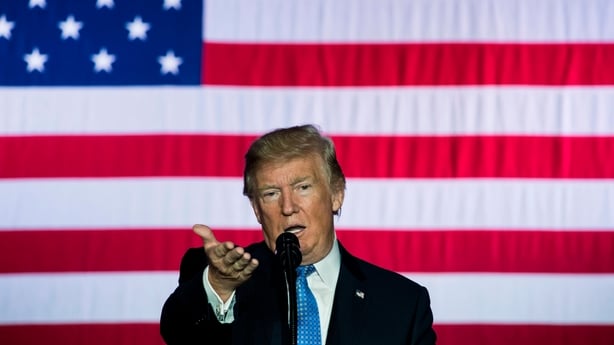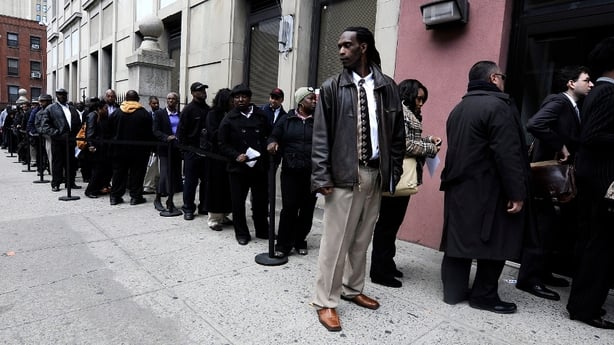US job growth increased at a strong clip in November and wages rebounded, painting a portrait of a healthy economy that analysts say does not require the kind of stimulus that President Donald Trump is proposing.
Non-farm payrolls rose by 228,000 jobs last month amid broad gains in hiring as the distortions from the recent hurricanes faded, Labor Department data showed today.
The US government revised data for October to show the economy adding 244,000 jobs instead of the previously reported 261,000 positions.
Employment gains in October were boosted by the return to work of thousands of employees who had been temporarily dislocated by Hurricanes Harvey and Irma.
November's report was the first clean reading since the storms, which also impacted September's employment data.
Average hourly US earnings rose five cents or 0.2% in November after dipping 0.1% the previous month.
That lifted the annual increase in wages to 2.5% from 2.3% in October.
US workers also put in more hours last month. The average workweek rose to 34.5 hours from 34.4 hours in October.
The US unemployment rate was unchanged at a 17-year low of 4.1% amid a rise in the labour force.
Economists polled by Reuters had forecast payrolls rising by 200,000 jobs last month.
The upbeat report underscored the economy's strength and could fuel criticism of efforts by Trump and his fellow Republicans in the US Congress to slash the corporate income tax rate to 20% from 35%.

"The labour market is in great shape. Tax cuts should be used when the economy needs tax cuts and it doesn't need tax cuts right now," said Joel Naroff, chief economist at Naroff Economic Advisors in Pennsylvania.
Republicans argue that the proposed tax cut package will boost the economy and allow companies to hire more workers.
But with the labour market near full employment and companies reporting difficulties finding qualified workers, most economists disagree. Job openings are near a record high.
The US economy grew at a 3.3% annualised rate in the third quarter, the fastest in three years.
While November's employment report will probably have little impact on expectations the Federal Reserve will raise interest rates at its December 12-13 policy meeting, it could help shape the debate on monetary policy next year.
The Fed has increased borrowing costs twice this year and has forecast three rate hikes in 2018.
US employment growth has averaged 174,000 jobs per month this year, down from the average monthly gain of 187,000 in 2016. A slowdown in job growth is normal when the labour market nears full employment.
The economy needs to create 75,000 to 100,000 jobs per month to keep up with growth in the working-age population. The unemployment rate has declined by seven-tenths of a percentage point this year.

A broader measure of unemployment, which includes people who want to work but have given up searching and those working part time because they cannot find full-time employment, moved up to 8% last month from a near 11-year low of 7.9% in October.
Economists believe the shrinking labour market slack will unleash a faster pace of wage growth next year. That, combined with the tax cuts, would help to boost inflation.
Today's figures show that the growth in employment was broad in November. US construction payrolls increased by 24,000 jobs, thanks in part to rebuilding efforts in the areas devastated by the hurricanes, after rising 10,000 in October.
US manufacturing scored another month of solid job gains, with payrolls increasing by 31,000 jobs after rising 23,000 in the prior month. Retail payrolls grew by 18,700 jobs last month, the largest gain since January, likely boosted by hiring for the Christmas season.
Employment at department stores increased by 3,100 jobs last month. Retailers, including Macy's, reported strong Black Friday sales.
Macy's said this month it would hire an additional 7,000 temporary workers for its stores to deal with heavy customer traffic in the run-up to Christmas.
Payrolls at non-store retailers, however, fell by 2,600 jobs. Government hiring increased by 7,000 jobs after declining for two months in a row. Restaurants and bars hired 18,900 more workers last month.

